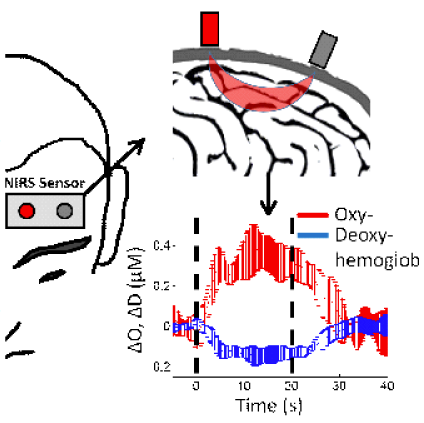
Dr. Jana Kainerstorfer
Professor, Biomedical Engineering
Associate Department Head for Faculty and Graduate Affairs
- Scott Hall 4N105
- 412 268 5781
- 412 268 3025
Scott Hall 4N105
Carnegie Mellon University
5000 Forbes Avenue
Pittsburgh, PA 15213
Education
-
Ph.D., University of Vienna/NIH, 2010
-
Postdoctoral Fellowship, Tufts University
Bio
Jana Kainerstorfer is a Professor of Biomedical Engineering at Carnegie Mellon University and holds courtesy appointments in the Neuroscience Institute and Electrical & Computer Engineering. Her lab’s research is focused on developing noninvasive optical imaging methods for disease detection and/or treatment monitoring, with an emphasis on diffuse optical imaging. She serves on program committees at national and international conferences (including the SPIE Photonics West as well as OSA Topical Meetings) and served as Program Chair for the OSA Biophotonics Congress: Optical Tomography and Spectroscopy in 2020. She further is an associate editor for Journal of Biomedical Optics (SPIE), served as associated editor for IEEE Transactions on Biomedical Engineering, as a guest editor for Opportunities in Neurophotonics in APL Photonics, and as editor for the Virtual Journal of Biomedical Optics (a journal of the Optical Society of America). She got elected as a senior member of the Optical Society of America. Her research has been funded by AHA, NIH, ONR, DARPA, and the Air Force, including the NIH R21 Trailblazer as well as AHA Scientist Development Grant.
Research
Research in the Biophotonics lab is focused on developing imaging methods for improving early diagnosis and treatment of disease. In particular, the research is focused on the role of the microvasculature in a variety of diseases and developing imaging methods which can be used in the clinic and at the patient’s bedside. For this, we dominantly are focusing on non-invasive, diffuse optical imaging with near-infrared light. The emphasis of the research spans two primary areas: 1) Instrument and protocol development of non-invasive optical imaging methods which can yield biomarkers for disease diagnostics and monitoring, and 2) Translation of such imaging tools to answer clinical questions where microvascular imaging can be of use for understanding a pathophysiology or monitoring of disease. Current projects include development of a hand held device for breast cancer imaging as well as cerebral hemodynamic monitoring in traumatic brain injury.
Research Interests: biomedical optics; neurophotonics; neural sensing; medical devices; optical imaging of disease;

Awards and Recognition
- SPIE Fellow
- Senior Member of the Optical Society of America
- NIH Trailblazer Award
- American Heart Association Scientist Development Grant
- College of Engineering George Tallman Ladd Award